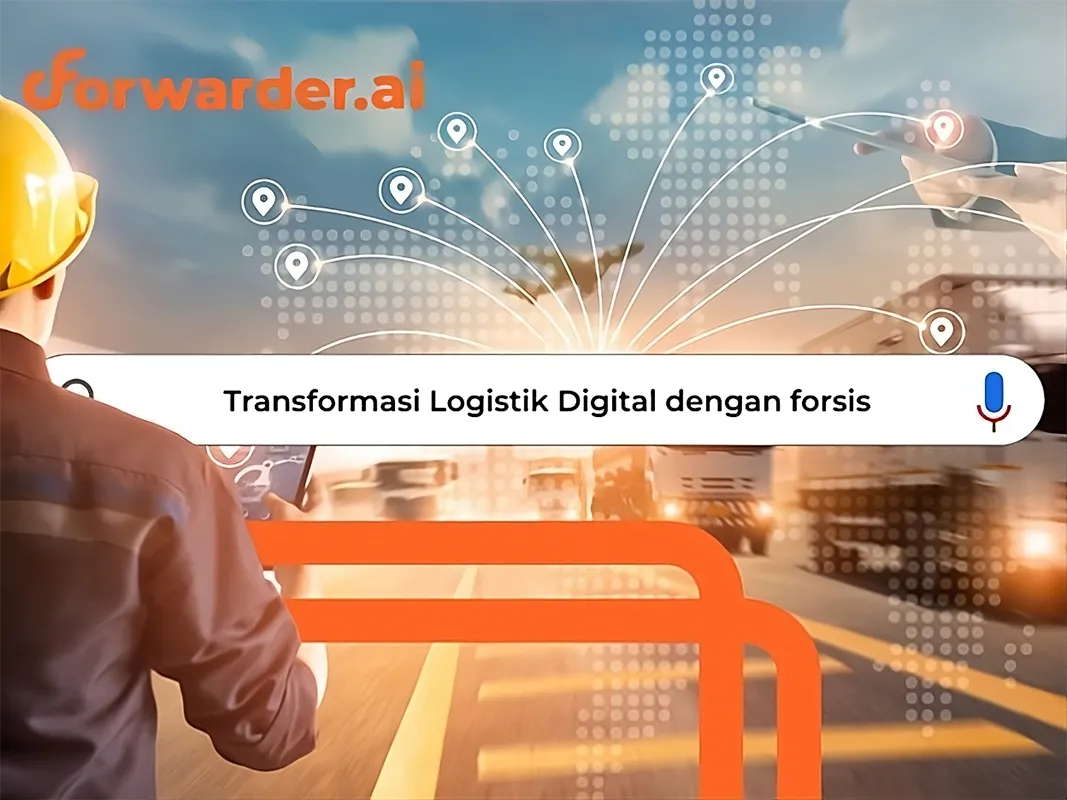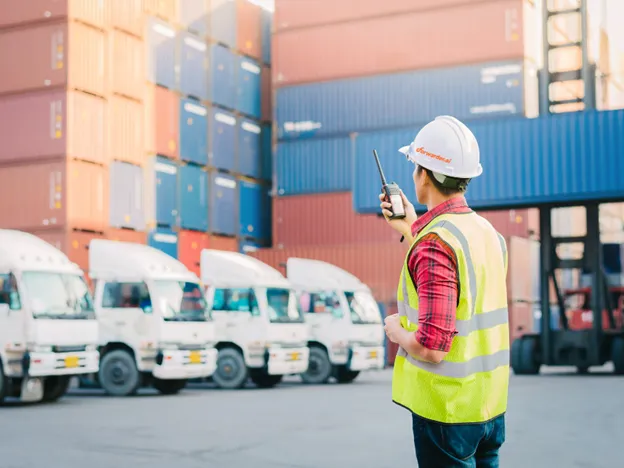
AI-based TMS System for Optimal Efficiency
Logistics digitization has become an urgent need in the industrial era 4.0, especially with the ever-evolving technological advancements. One of the leading innovations in this field is forsis' Transport Management System (TMS), or Forwarder Scalable Intelligence System. This system utilizes artificial intelligence (AI) to simplify logistics operations from booking to vehicle control, all in one unified platform. With the use of advanced technology, forsis is designed to increase efficiency, optimize operational costs, and provide more responsive and adaptive logistics solutions. According to a report from Gartner, the TMS market is expected to grow at 13.6% per year through 2025, indicating a significant increase in the adoption of these systems in the logistics industry.
forsis started its logistics revolution by simplifying the booking process. Through this platform, users can easily enter delivery details, select the type of vehicle needed, and get real-time cost estimates. The system has also developed AI algorithms that are capable of analyzing historical data and actual conditions to optimize route planning. This not only reduces travel time but also reduces fuel consumption and carbon emissions. According to a study by McKinsey & Company, route optimization with AI can reduce transportation costs by 15% and reduce carbon emissions by 30%.
Read more : Exploration of Shipping Methods in Logistics: Types, Advantages, and Considerations
One of the biggest challenges in logistics management is vehicle fleet management. forsis offers a comprehensive solution with features such as real-time vehicle tracking, vehicle maintenance management, and driver performance analysis. Using IoT and GPS sensors, forsis can monitor the location and condition of each vehicle, providing accurate data for better decision-making. This allows companies to respond quickly to changing situations in the field, ensuring on-time deliveries and reducing vehicle downtime. According to International Data Corporation (IDC), the use of IoT in fleet management is expected to save up to $1.9 trillion in operating costs by 2028.

Illustration of logistics fleet control.
This allows companies to respond quickly to changing situations in the field, ensuring on-time deliveries and reducing vehicle downtime. According to International Data Corporation (IDC), the use of IoT in fleet management is expected to save up to $1.9 trillion in operating costs by 2028.
Data security and operational transparency are two crucial aspects of modern logistics. forsis uses blockchain technology to ensure every transaction and information flow is secure. Every transaction is protected by cryptography, and new blocks can only be added through consensus protocols such as Proof of Work or Proof of Stake. Once recorded, the data in a block cannot be changed without modifying all subsequent blocks, which requires huge computing power, thus ensuring immutability.
In addition, the platform provides end-to-end visibility of the entire delivery process, allowing all parties involved to monitor the delivery status in real-time. As such, customers can feel more at ease knowing their goods are in good hands and can verify each stage of delivery. According to Deloitte, blockchain implementation in logistics can increase transparency and reduce administrative costs by up to 20%.
Forsis not only helps in day-to-day operations, but also in strategic decision-making. It collects and analyzes large amounts of data, providing valuable insights that can be used to identify trends, optimize strategies, and make accurate predictions about future needs. With AI constantly learning and evolving, forsis is able to provide increasingly precise and relevant recommendations over time.
A study by Boston Consulting Group shows that companies that utilize big data and AI in logistics can increase profitability by 8% and reduce costs by 10%. From forsis, we can check all shipment history, price fluctuations, cost database, customer database, and vendor database. This allows us to process big data supply and demand trends from our internal logistics, so that we can predict future needs and costs more accurately.
Read more : Impact of Weather and Seasons on Sea Freight and its Effect on Freight Forwarding
With forsis, logistics companies can overcome the challenges faced in an increasingly complex and fast-changing world. The system offers solutions that are not only efficient but also adaptive to evolving needs. Digitizing logistics through an AI-powered TMS like forsis is no longer just an option, but a necessity for companies that want to remain competitive and relevant in the future. According to a report by PwC, logistics digitization is expected to increase industry productivity by $1.5 trillion by 2025.

Illustration of the blockchain system in the TMS forsis system.
forwarder.ai implements the forsis TMS system with various advanced features to manage logistics efficiently and effectively. The shipment management features include master data, order management, and invoicing, allowing easy monitoring and organization of shipments from start to finish. Vendor/partner management in the system is also highly organized, with master data and vendor management ensuring smooth cooperation with logistics partners. In addition, forsis provides comprehensive cost data recap management through master data, order management, and reports, helping companies track and analyze expenses in detail. GPS integration in this forsis system includes command center, vendor management, and order management, enabling real-time tracking, route optimization, and improved coordination between various parties involved in the logistics process.
In addition, the fordex system with Application Programming Interfaces (API) integration offers superior logistics solutions with forwarder.ai's innovative features. Transparent and competitive pricing ensures users get the best deals without hidden costs. A reliable integration system makes it easy to synchronize with various platforms, improving reliability and operational efficiency. Efficiency in the booking and tracking system allows the process of booking and tracking cargo to be done quickly and easily. Users can also access real-time ship departure schedules, monitor cargo positions, and check rates and make bookings directly through the API. All these features make fordex the ideal choice for modern and efficient logistics management.
Nikmati voucher hingga 200K untuk pengiriman pertamamu. Langsung berlaku dan otomatis terpotong saat checkout.
Dapatkan Diskon!